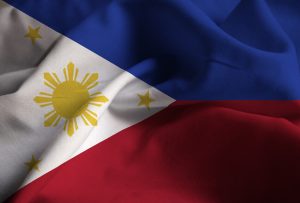The three-month election campaign in the Philippines is set to start tomorrow amid a continuing pandemic scare and doubts over the legal eligibility of a leading presidential candidate.
There are 10 presidential candidates, nine vice-presidential candidates, 64 senatorial aspirants, and 177 party-list groups. In the Philippines, the president and vice president are elected separately. Only 12 senators will be declared winners. Party-list groups with 2 percent of votes will automatically get one seat in Congress. Local elections for more than 18,000 positions will be held at the same time.
There are 65.7 million domestic voters and around 1.8 million overseas voters. The national and local elections are scheduled for May 9.
The ten presidential candidates are Ernesto Abella, Leodegario de Guzman, Francisco “Isko Moreno” Domagoso, Norberto Gonzales, Panfilo Lacson, Faisal Mangondato, Ferdinand Marcos Jr, Jose Montemayor Jr, Emmanuel Pacquiao, and Maria Leonor Robredo.
Abella is the former spokesperson of President Rodrigo Duterte although he is running as an independent. De Guzman is a socialist labor leader. Domagoso is the incumbent mayor of the nation’s capital Manila. Gonzales served in the Gloria Arroyo administration as defense secretary and national security adviser. Lacson was police chief from 1999 to 2001 before being elected senator. Mangondato is a businessman. Marcos Jr is a former senator and son of ousted dictator Ferdinand Marcos. Montemayor Jr is a doctor and lawyer. Pacquiao is a senator and world boxing champion. Robredo is a former congresswoman, who was elected vice president in 2016.
President Rodrigo Duterte’s party initially fielded a presidential candidate but he backed out of the race. Duterte has yet to endorse a candidate although he has been consistent in maligning the qualifications of Marcos, the leading candidate, whom he accused of being weak, a spoiled brat, and cocaine user.
The nine vice presidential candidates are Lito Atienza, Walden Bello, Rizalito David, Sara Duterte, Manny Lopez, Willie Ong, Francis Pangilinan, Carlos Serapio, and Vicente Sotto III.
Atienza is a party-list representative and former Manila mayor. Bello is a socialist scholar and former legislator. David is a pro-life advocate. Duterte is the mayor of Davao City and daughter of the country’s president, although she is running with a different party. Lopez is a nominee of the Labor Party Philippines. Ong is a physician. Pangilinan is a senator. Serapio is a lawyer. Sotto is an actor and the president of the Senate.
As expected, Mayor Duterte was adopted by the ruling party. Her running mate, Marcos, is facing a disqualification case for his tax evasion conviction in 1995. The petition questioning his eligibility is still pending at the Commission on Elections (Comelec) and could potentially reach the Supreme Court. Before retiring from Comelec, a commissioner protested the delay in resolving the case and accused a “powerful” politician of trying to interfere in how the poll body will vote on the issue. The allegations raised by no less than a Comelec commissioner have affected the credibility of the body to hold a fair and independent election process.
If the case is not resolved with finality before May 9, it could trigger a political crisis, especially if Marcos goes on to get the highest number of votes, as the latest surveys suggest. That Marcos will dominate the election is still speculative if we recall how the front runners during the campaign period in 2004, 2010, and 2016 presidential elections failed to keep their high margins leading up to Election Day, and in fact, they all lost. Marcos may be leading in several surveys today but his frequent refusal to guest in debates and media interviews could undermine his campaign in the long run.
The biggest challenge for Comelec, the candidates, and their supporters is how to mount a nationwide campaign for three months without creating superspreader events as the country continues to register a high number of COVID-19 cases. Comelec has already drafted guidelines to ensure that parties and candidates will adopt health and safety protocols but their enforcement remains to be seen since this is the country’s first election during the pandemic. What is clear is that there will be limited interaction between candidates and voters, and assemblies will be few and regulated. This could prove more advantageous to candidates holding incumbent positions since they can freely move around the country in the performance of their duties. This also benefits candidates with enough resources to place media and social media advertisements in order to boost their visibility and popularity.
Another important factor or even game changer in the coming election is Duterte’s endorsement. His support could make it easier for candidates to access government resources even if this is not permitted by law. Duterte could go around the country and campaign for or against certain candidates. He has already hinted how he will do this when he urged voters to reject senators investigating a pandemic-related corruption issue. But Duterte’s critics believe that the president’s endorsement could actually prove more harmful to candidates because of public dissatisfaction over the government’s pandemic response and the prolonged militarized lockdowns that have severely crippled the economy. Viewed this way, the 2022 elections will inevitably become a crucial referendum on the legacy of the Duterte presidency.

































